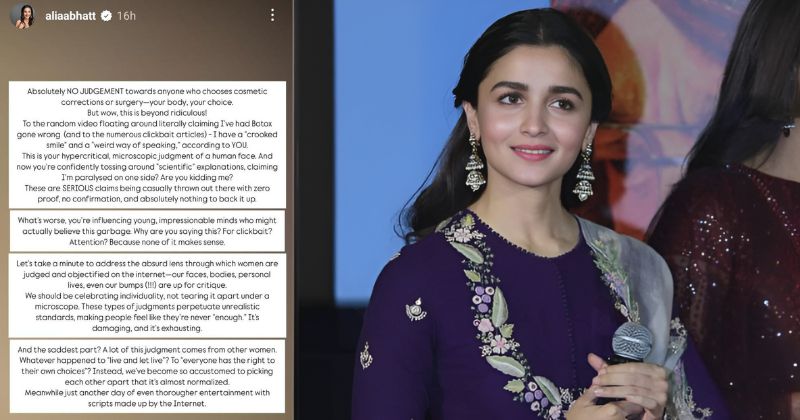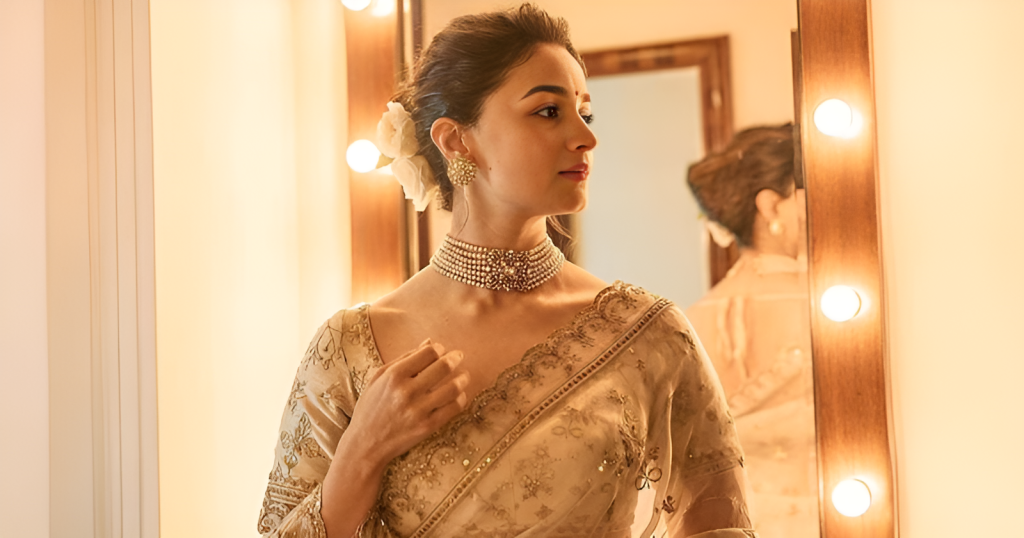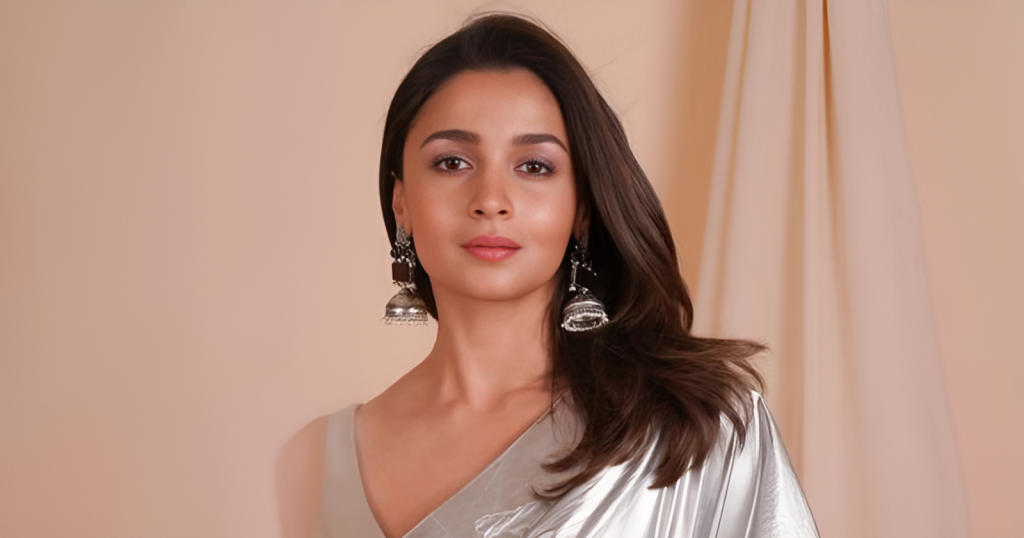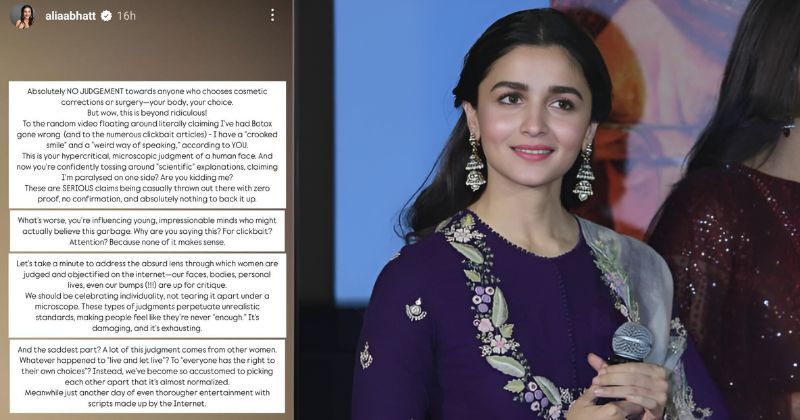
Indian actress Alia Bhatt recently took to her social media to address a wave of criticism and body-shaming directed toward her, primarily targeting her appearance and rumored cosmetic alterations. Bhatt’s response came after a viral video speculated that she had undergone cosmetic procedures, citing a “crooked smile,” a “weird way of speaking,” and an alleged “Botox gone wrong” incident. The actress confronted these claims head-on, labeling the rumors not only baseless but also harmful.
In her statement, Alia clarified that she holds no prejudice against individuals who choose to undergo cosmetic procedures, emphasizing, “Your body, and your choice.” However, she expressed frustration over the extent to which social media users scrutinize every detail of her appearance, going as far as to propose so-called “scientific” theories claiming she has partial facial paralysis. “Are you kidding me?” she questioned, incredulous at the extreme conclusions drawn by online critics.

Alia raised concerns over how these unwarranted speculations might mislead young, impressionable audiences who may take such unfounded accusations at face value. This type of commentary, she suggests, reflects a larger issue of “clickbait culture” and the lengths people go for online attention, often at the expense of someone else’s well-being. Bhatt suggested that the intent behind these accusations seems to be driven more by sensationalism than by any factual or compassionate interest.
In a broader social commentary, Alia expressed dismay over society’s frequent imposition of unrealistic beauty standards, especially on women. These expectations, she pointed out, often lead to public figures being subjected to unwarranted scrutiny over their looks, mannerisms, and personal choices, creating a space where individuality is undermined rather than celebrated. For Alia, the pressure to conform to idealized standards is exhausting and damaging, especially when reinforced through media and online discourse.
What seemed to trouble Bhatt most is the role women play in perpetuating this cycle of judgment and objectification? She questioned why women often fail to support each other’s choices and instead partake in the same critical behavior that they themselves find troubling. Alia voiced her dismay that societal standards for women’s appearances are still dictated by rigid norms, with a lack of encouragement for diversity and self-acceptance. Rather than judging each other’s choices, she stressed the importance of adopting a “live and let live” attitude, allowing space for people to express their individuality without fear of harsh scrutiny.

Alia Bhatt’s response resonated widely with her fans and followers, many of whom praised her for addressing the issue directly. In a society increasingly driven by appearances and online personas, her stand against baseless assumptions and toxic commentary highlights the importance of a more compassionate approach to public discourse.








